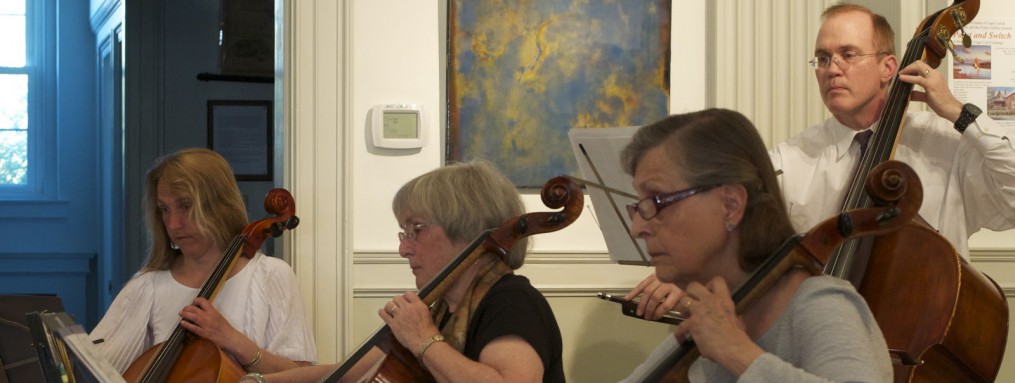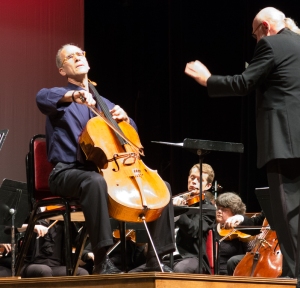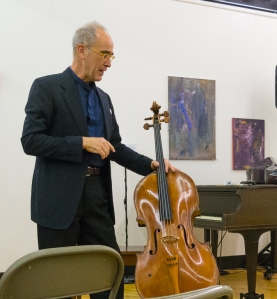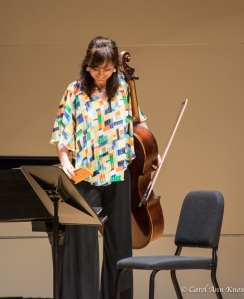I’ve been away from playing the cello for a few months (a gardening injury to my left hand left me with tendonitis and the need to rest my hand), so it was a joy to get a birthday present from my husband of tickets to a concert in New Bedford featuring Carter Brey playing the Schumann Cello Concerto with the New Bedford Symphony. Additionally, a friend of ours (who is the official photographer of the orchestra) told us we definitely should attend the preconcert talk which the conductor, David Mackenzie, provides before each concert. And, since Mackenzie, a suburb conductor, is leaving for Hawaii after this season, this was a chance to see another of his performances.
I’ve been to a lot of concert evenings, but this ranks right up there as one of the most special. Carter Brey came to the preconcert discussion with Conductor Mackenzie. After David Mackenzie discussed the Britten sea pieces and Mussorgsky’s “Pictures at an Exhibition”, Carter Brey talked about Schumann, and said more about the concerto we were about to hear. He brought out his cello (he talked about it’s history and how he came to own it) and played some excerpts that we should listen for. He was even gracious enough to allow our friend to take a photo of me with him. What a nice person!
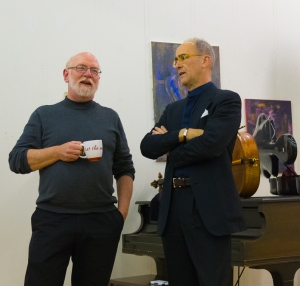
Preconcert Talk: David and Carter discussing the concert
The concert was stellar. I provided a link below to a review from one of the local papers. Brey’s playing of the Schumann was wonderful: beautiful, sonorous, emotional. (I wish my cello sounded like that!) In the preconcert talk Brey mentioned that he played this concerto for the first time in Washington, DC with Rostropovich conducting. Someone mentioned to me that Rostropovich thought that Brey’s playing of Schumann was among the best. I certainly thought so after hearing the performance. At the end of his performance he hugged all the principals (he clearly had wonderful rapport with the orchestra), and then for the last piece on the program he drew up a chair at the back of the cello section and played with the orchestra (something I’ve also seen Yo-Yo Ma do). It’s so inspiring to see this kind of love of music making. To Mackenzie’s and the orchestra’s credit, the Mussorgsky was one of the best performances I’ve heard of that piece; it was filled with energy and dynamics and came to such a rousing conclusion that it brought the hall to it’s feet. Such a memorable and inspiring evening! Thank you Carter Brey and thank you to the New Bedford Symphony, a wonderful local orchestra filled with talent.
Review: NBSO offers evening of education, exultation
